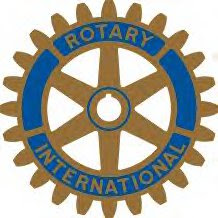 Photo: The Guest Speakers at the December16th meeting: Matthias Stausberg (right) and Jonas Haertle (left) with Moderator Josef Klee (center). Mr. Stausberg jointed the UN Global Compact Office in September 2002. As lead Spokesperson, he heads the initiative's public affairs and media relations work and is a frequent speaker and writer on issues of corporate responsibility and sustainability. Born and raised in Germany. He is a German National Merit Scholar and a Fulbright Scholar and he earned a Master's dress in Mass Communication from the University of North Carolin's School of Journalism. Mr Haertle works as Coordinator for Networks and Academic Initiatives at the United Nations Global Compact Office. He is in charge of coordinating the work of the Global Compact country networks in the Americas, Africa and the Middle East. In his role as academic initiatives coordinator he works with approximately 250 business schools and universities which participation the Global Compact. He earned a master's in Global Affairs from Rutgers University and European Studies from Hamburg University, Germany.
Photo: The Guest Speakers at the December16th meeting: Matthias Stausberg (right) and Jonas Haertle (left) with Moderator Josef Klee (center). Mr. Stausberg jointed the UN Global Compact Office in September 2002. As lead Spokesperson, he heads the initiative's public affairs and media relations work and is a frequent speaker and writer on issues of corporate responsibility and sustainability. Born and raised in Germany. He is a German National Merit Scholar and a Fulbright Scholar and he earned a Master's dress in Mass Communication from the University of North Carolin's School of Journalism. Mr Haertle works as Coordinator for Networks and Academic Initiatives at the United Nations Global Compact Office. He is in charge of coordinating the work of the Global Compact country networks in the Americas, Africa and the Middle East. In his role as academic initiatives coordinator he works with approximately 250 business schools and universities which participation the Global Compact. He earned a master's in Global Affairs from Rutgers University and European Studies from Hamburg University, Germany.The announcement was made on the occasion of Rotary International UN Day, hosted at UN Headquarters on November 6 2009. The event, held annually to celebrate Rotary’s longstanding relationship with the United Nations, brought together more than 1,600 Rotary members from around the world, as well as representatives of various UN organizations and departments.
In a joint letter to be sent to Rotary District Governors and Global Compact Local Network focal points, Rotary International General Secretary Edwin H. Futa and UN Global Compact Executive Director Georg Kell encourage a set of joint activities to advance the shared ideals of “high ethical business practices, sustainable humanitarian action, and world peace and understanding”.
More specifically, the letters ask Global Compact networks and Rotary clubs and districts to engage in education and information sharing; local project implementation or collaboration (particularly those addressing the Millennium Development Goals); and coordinating a joint, collaborative effort promoting the best of corporate social responsibility practices and volunteer leadership and action at the local, district or national level.
“Through discussion, collaboration and joint cooperation, Rotary clubs and the United Nations Global Compact can foster high ethical standards, universal principles, and tangible humanitarian successes,” said Futa. “Together, we can work for the benefit of all.”
In addition, Rotary members are encouraged to facilitate further business participation in the Global Compact, and invite Global Compact Network participants to join local Rotary clubs.
“Both Rotary International and the Global Compact are rooted in a shared vision of responsible leadership to address global challenges,” said Georg Kell. “Seeking stronger collaboration between our local networks and Rotary clubs makes much sense, and I am confident that working together will make a significant contribution to the advancement of sustainable development in the spirit of universal values.”
About the United Nations Global Compact
Launched in 2000, the United Nations Global Compact is a both a policy platform and a practical framework for companies that are committed to sustainability and responsible business practices. As a multi-stakeholder leadership initiative, it seeks to align business operations and strategies with ten universally accepted principles in the areas of human rights, labour, environment and anti-corruption and to catalyze actions in support of broader UN goals. With over 5,200 corporate signatories in more than 130 countries, it is the world's largest voluntary corporate citizenship initiative. For more information, visit http://www.unglobalcompact.org/.









